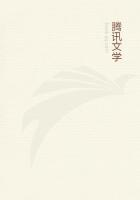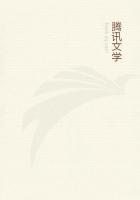These hapless caricaturists of the dialectic of Plato, and the logic of Aristotle, careless of any vital principles or real results, ready enough to use fallacies each for their own party, and openly proud of their success in doing so, were assisted by worthy compeers of an outwardly opposite tone of thought, the Cyrenaics, Theodorus and Hegesias. With their clique, as with their master Aristippus, the senses were the only avenues to knowledge; man was the measure of all things; and "happiness our being's end and aim." Theodorus was surnamed the Atheist; and, it seems, not without good reason; for he taught that there was no absolute or eternal difference between good and evil;nothing really disgraceful in crimes; no divine ground for laws, which according to him had been invented by men to prevent fools from ****** themselves disagreeable; on which theory, laws must be confessed to have been in all ages somewhat of a failure. He seems to have been, like his master, an impudent light-hearted fellow, who took life easily enough, laughed at patriotism, and all other high-flown notions, boasted that the world was his country, and was no doubt excellent after-dinner company for the great king. Hegesias, his fellow Cyrenaic, was a man of a darker and more melancholic temperament; and while Theodorus contented himself with preaching a comfortable selfishness, and obtaining pleasure, made it rather his study to avoid pain. Doubtless both their theories were popular enough at Alexandria, as they were in France during the analogous period, the Siecle Louis Quinze. The "Contrat Social," and the rest of their doctrines, moral and metaphysical, will always have their admirers on earth, as long as that variety of the human species exists for whose especial behoof Theodorus held that laws were made; and the whole form of thought met with great approbation in after years at Rome, where Epicurus carried it to its highest perfection. After that, under the pressure of a train of rather severe lessons, which Gibbon has detailed in his "Decline and Fall of the Roman Empire," little or nothing was heard of it, save sotto voce, perhaps, at the Papal courts of the sixteenth century. To revive it publicly, or at least as much of it as could be borne by a world now for seventeen centuries Christian, was the glory of the eighteenth century. The moral scheme of Theodorus has now nearly vanished among us, at least as a confessed creed; and, in spite of the authority of Mr. Locke's great and good name, his metaphysical scheme is showing signs of a like approaching disappearance. Let us hope that it may be a speedy one; for if the senses be the only avenues to knowledge; if man be the measure of all things; and if law have not, as Hooker says, her fount and home in the very bosom of God himself, then was Homer's Zeus right in declaring man to be "the most wretched of all the beasts of the field."And yet one cannot help looking with a sort of awe (I dare not call it respect) at that melancholic faithless Hegesias. Doubtless he, like his compeers, and indeed all Alexandria for three hundred years, cultivated philosophy with no more real purpose than it was cultivated by the graceless beaux-esprits of Louis XV.'s court, and with as little practical effect on morality; but of this Hegesias alone it stands written, that his teaching actually made men do something; and moreover, do the most solemn and important thing which any man can do, excepting always doing right. I must confess, however, that the result of his teaching took so unexpected a form, that the reigning Ptolemy, apparently Philadelphus, had to interfere with the sacred right of every man to talk as much nonsense as he likes, and forbade Hegesias to teach at Alexandria. For Hegesias, a Cyrenaic like Theodorus, but a rather more morose pedant than that saucy and happy scoffer, having discovered that the great end of man was to avoid pain, also discovered (his digestion being probably in a disordered state) that there was so much more pain than pleasure in the world, as to make it a thoroughly disagreeable place, of which man was well rid at any price. Whereon he wrote a book called, [Greek text: apokarteroon], in which a man who had determined to starve himself, preached the miseries of human life, and the blessings of death, with such overpowering force, that the book actually drove many persons to commit suicide, and escape from a world which was not fit to dwell in. A fearful proof of how rotten the state of society was becoming, how desperate the minds of men, during those frightful centuries which immediately preceded the Christian era, and how fast was approaching that dark chaos of unbelief and unrighteousness, which Paul of Tarsus so analyses and describes in the first chapter of his Epistle to the Romans--when the old light was lost, the old faiths extinct, the old reverence for the laws of family and national life, destroyed, yea even the natural instincts themselves perverted; that chaos whose darkness Juvenal, and Petronius, and Tacitus have proved, in their fearful pages, not to have been exaggerated by the more compassionate though more righteous Jew.
And now observe, that this selfishness--this wholesome state of equilibrium--this philosophic calm, which is really only a lazy pride, was, as far as we can tell, the main object of all the schools from the time of Alexander to the Christian era. We know very little of those Sceptics, Cynics, Epicureans, Academics, Peripatetics, Stoics, of whom there has been so much talk, except at second-hand, through the Romans, from whom Stoicism in after ages received a new and not ignoble life.
But this we do know of the later sets, that they gradually gave up the search for truth, and propounded to themselves as the great type for a philosopher, How shall a man save his own soul from this evil world?














